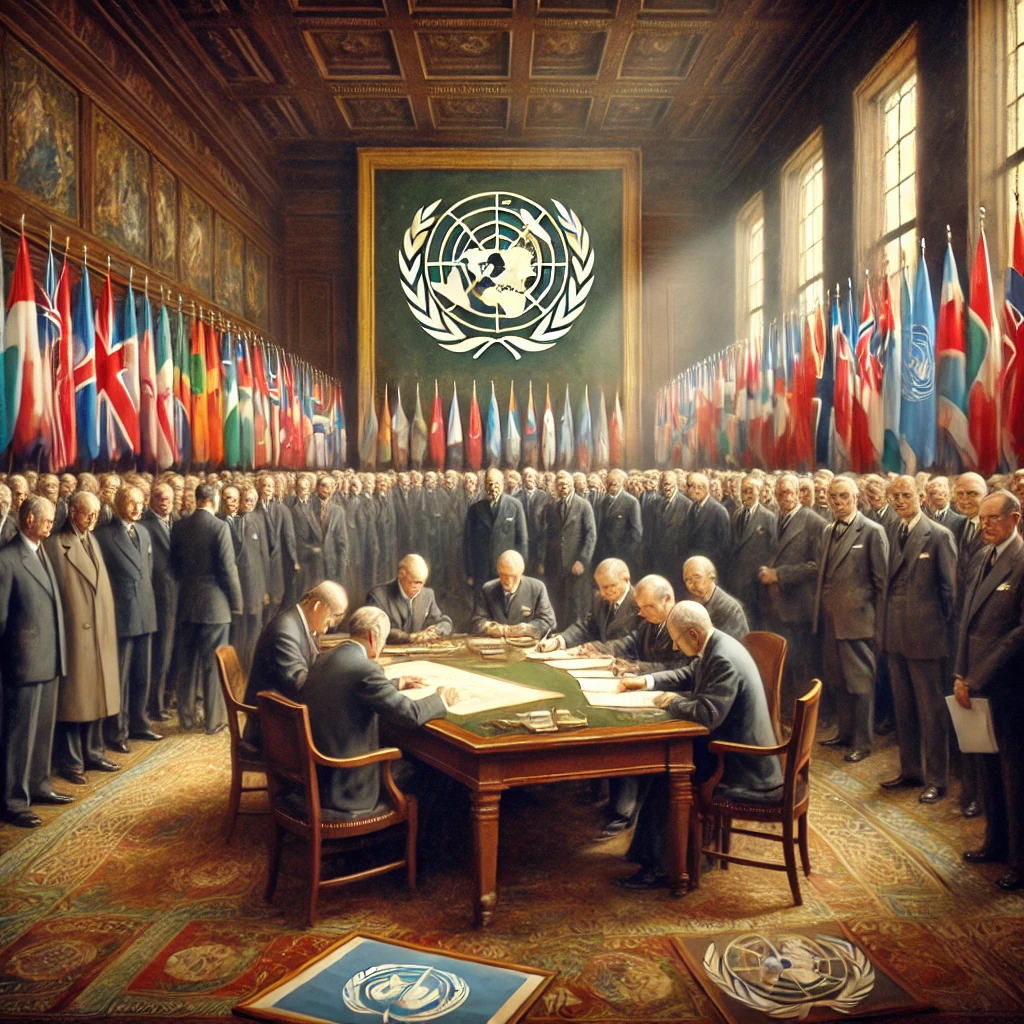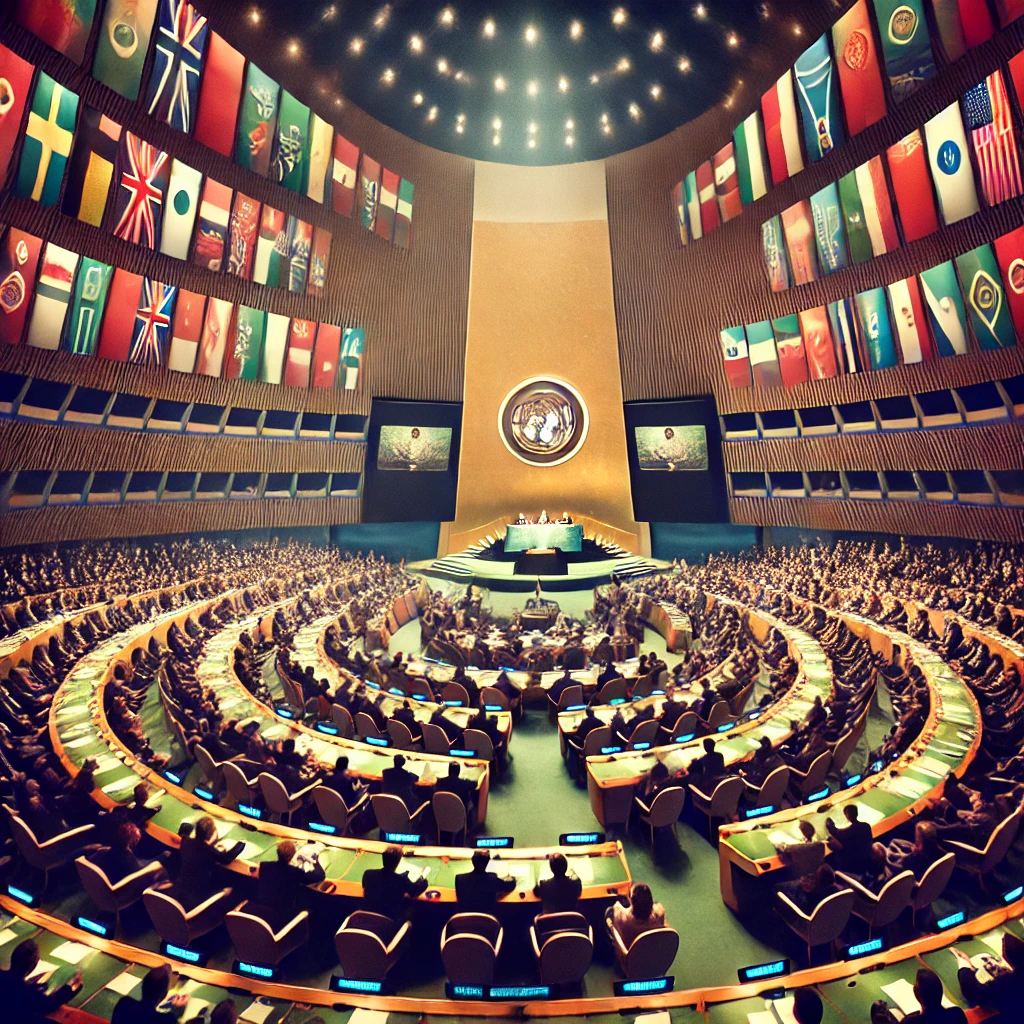On October 24, 1945, the United Nations (UN) was officially established in the aftermath of World War II, marking a pivotal moment in international relations and global governance. The formation of the UN was a response to the devastating consequences of the war, reflecting the world’s collective desire for peace, security, and cooperation among nations. This monumental event laid the foundation for a new era of diplomacy and multilateral collaboration aimed at preventing future conflicts and promoting international cooperation.

The Context of Global Conflict
The establishment of the United Nations was rooted in the profound devastation caused by World War II, which resulted in millions of deaths and widespread destruction across Europe, Asia, and beyond. In the wake of such catastrophic loss, world leaders recognized the urgent need for a mechanism that could facilitate dialogue, prevent conflict, and foster cooperation among nations. The failure of the League of Nations, established after World War I, underscored the necessity for a more robust and effective international organization.
In 1942, representatives from 26 nations signed the Declaration of the United Nations, committing to work together against the Axis powers and laying the groundwork for a post-war international order. This declaration emphasized the importance of collective security and cooperation in maintaining peace, leading to the eventual formation of the United Nations in 1945.

The Formation of the United Nations
The UN was officially founded at a conference held in San Francisco, where representatives from 50 nations gathered to draft the UN Charter. The drafting process was characterized by intense negotiations, as member states sought to balance their national interests with the overarching goal of promoting peace and security. The UN Charter was adopted on June 26, 1945, and the organization came into existence when the charter was ratified by the five permanent members of the Security Council: the United States, the Soviet Union, the United Kingdom, France, and China.
The UN’s mission was clear: to prevent future conflicts, promote human rights, and foster social and economic development. Its structure was designed to facilitate cooperation among member states, with various organs such as the General Assembly, the Security Council, and the International Court of Justice established to carry out its functions. The UN’s establishment marked a significant shift in international relations, moving from a system based on power politics to one grounded in collective responsibility and cooperation.
The Early Years and Initial Challenges
In its early years, the United Nations faced numerous challenges as it sought to fulfill its mission. The geopolitical tensions of the Cold War quickly emerged, with competing ideologies and interests threatening to undermine the organization’s goals. The UN’s ability to maintain peace and security was tested through various conflicts, including the Korean War and numerous decolonization struggles in Africa and Asia.

Despite these challenges, the UN made significant strides in promoting international cooperation and addressing global issues. Initiatives such as peacekeeping missions, humanitarian assistance, and the promotion of human rights became hallmarks of the organization’s work. The establishment of specialized agencies, such as the World Health Organization (WHO) and the United Nations Educational, Scientific and Cultural Organization (UNESCO), further expanded the UN’s reach and impact on global affairs.
The Legacy and Impact of the United Nations
The United Nations has evolved significantly since its founding, adapting to the changing global landscape and addressing emerging challenges. Its role in promoting peace, security, and development has become increasingly vital in a world marked by complex conflicts, climate change, and social inequality. The UN’s efforts to foster dialogue among nations, promote human rights, and address pressing global issues have cemented its position as a central player in international relations.
The impact of the United Nations is evident in various areas, from facilitating diplomatic negotiations to coordinating humanitarian responses to crises. The organization has played a crucial role in promoting sustainable development through initiatives like the Sustainable Development Goals (SDGs), which aim to address poverty, inequality, and environmental sustainability.
The birth of the United Nations on October 24, 1945, marked a significant turning point in global governance and international relations. Established in the wake of World War II, the UN embodies the collective aspiration for peace, cooperation, and human dignity. As we reflect on the legacy of the United Nations, we acknowledge its enduring commitment to fostering dialogue, addressing global challenges, and promoting a more just and peaceful world. The UN’s journey continues to inspire hope for a future where nations work together to confront the pressing issues of our time, reinforcing the belief that collective action is essential for achieving lasting peace and prosperity.
